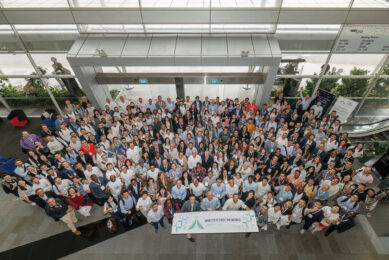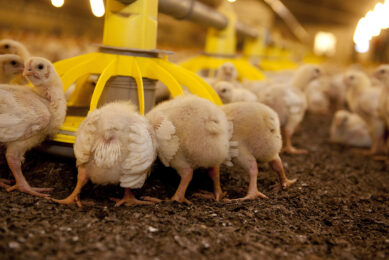Live at Victam Asia: Antibiotic reduction through nutrition management
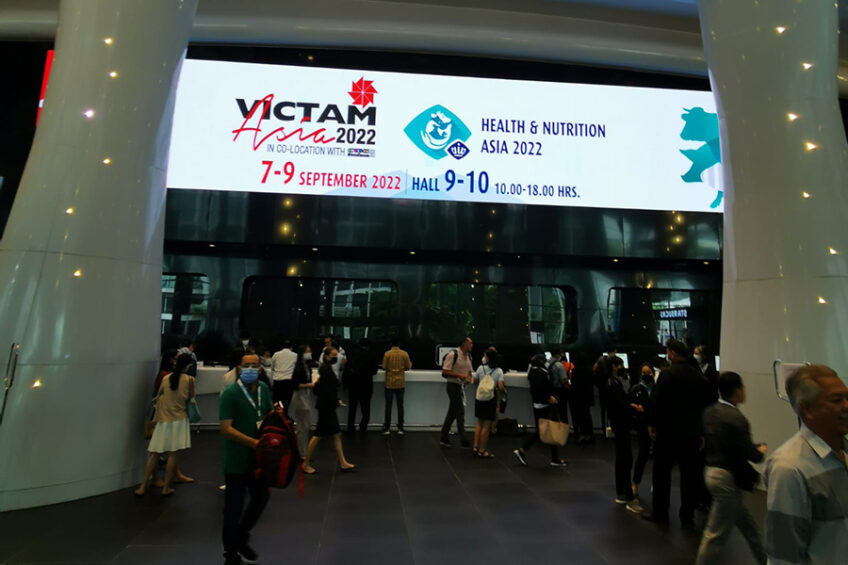
Keeping animals healthy is key in livestock production and on 8 September at Victam Asia 2022 in Bangkok, Thailand, All About Feed hosted a seminar in which experts explored nutrition management and its importance in antibiotic reduction.
Antibiotic reduction in livestock is more important than ever and this very relevant topic has set some challenges as well opportunities in the livestock sector. With 2 global experts the seminar hosted by All About Feed brought to the forefront some key points to consider in order to maintain healthier animals and reduce antibiotic use.
First up: The AMR paradox
First up at the seminar was Dr Annop Suriyasomboon, a lecturer at the Department of Animal Husbandry, Faculty of Veterinary Science, Chulalongkorn University in Bangkok, Thailand. The topic of his presentation was, “The AMR paradox: Towards sustainable livestock production.” During the seminar Dr Annop first looked at the causes of antimicrobial resistance (AMR) on farms, he mentioned the importance of a breeding plan and higher robustness of the pig population.
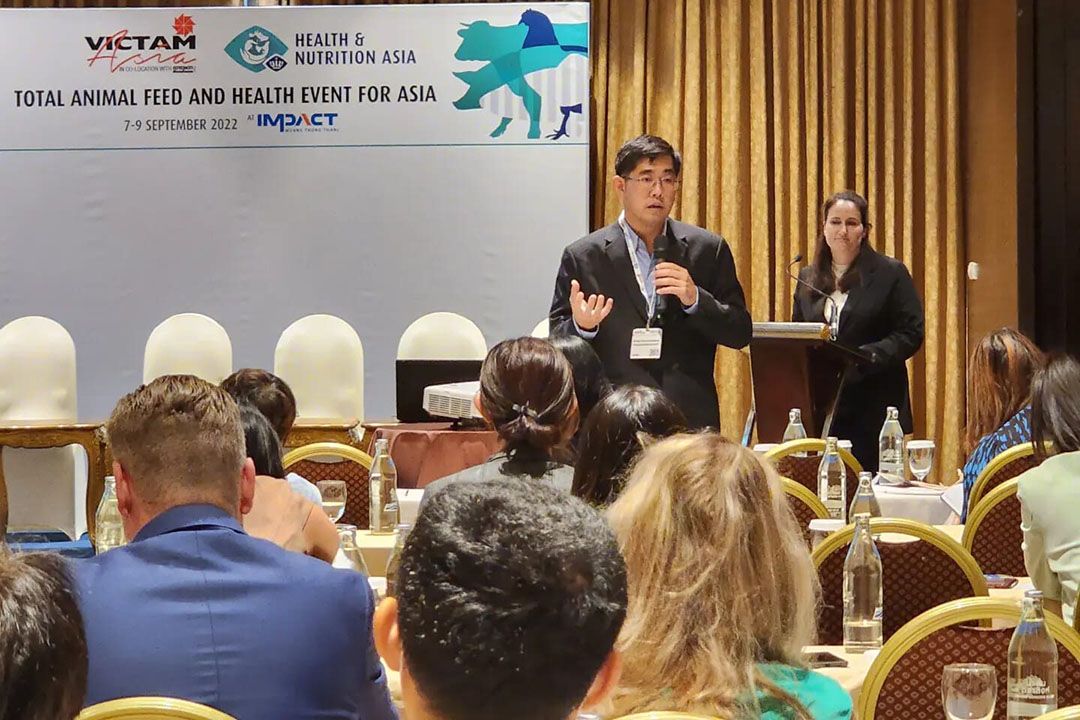
In his view a management plan with properly trained employees is of utmost importance on farm to ensure a sustainable operation and healthy animals. Breeding and selection was a focus point in his presentation.
Inside a farm you have 3 kinds of pigs – resistant, tolerant and susceptible – by turning to pig selection you can have a pig that is resistant to for example E.coli.
– Dr Annop Suriyasomboon
Nutrition plays a role
Dr Annop also stressed the importance of health condition and nutrition management and if not properly maintained, they play a factor in causing AMR. In terms of nutrition, livestock producers should be aware of:
Inadequate feed amount
Too high/ low nutrition content
Not using feed additives
Making use of low-quality trace minerals
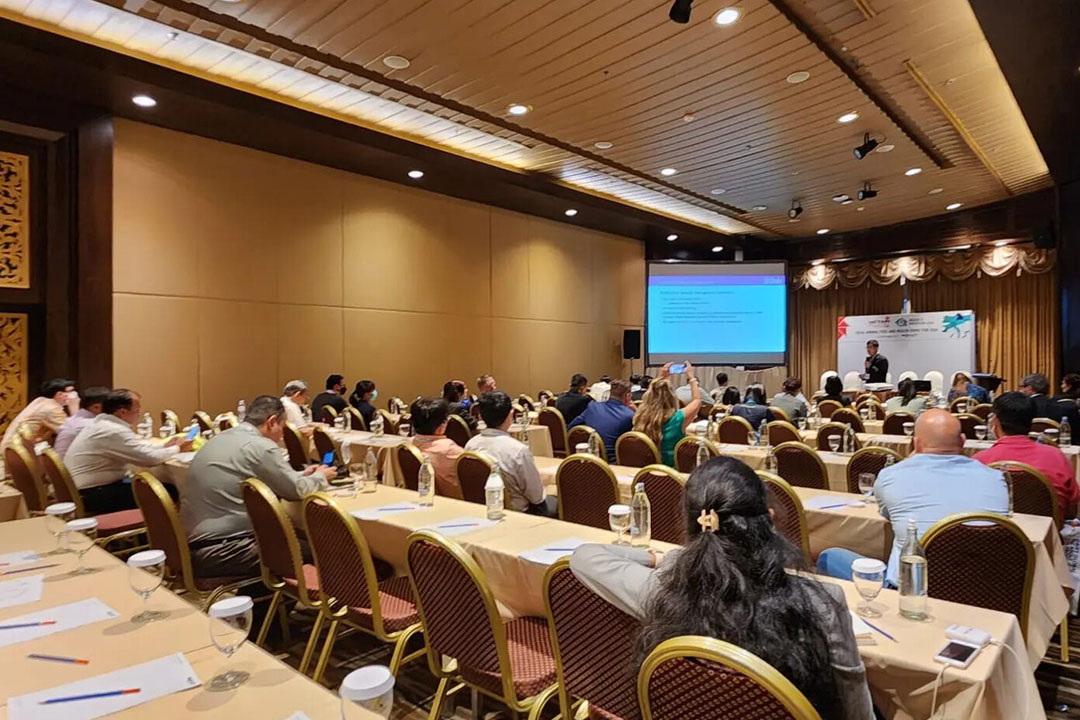
Sustainable solutions
Sustainable solutions to combat AMR on farm was part of his presentation and he added that the proper requirements of animal feed ingredients are essential. Some sustainable solutions include: “Raw materials that have antimicrobial and/or antiviral properties: lauric acid in medium chain fatty acid, butyric acid w glyceride,” Dr Annop stated.
He also highlighted other solutions to consider:
Pre and/or Probiotic: MOS, FOS, LAB – Bacillus subtilis, Lactobacillus species, enzymes, acid and trace mineral,
Bio-stimulant: Chitosan-oligosaccharide (COS), plant extracts – flavonoid, phenolic compounds.
Next up: GIT health
In the second presentation of the seminar, Fajrin Sidiq, technical manager at IFF focused on the topic: “Scientific and Practical Approach to GIT Health – Antibiotics Reduced Program.” He touched on how antimicrobial resistance occurs and the impact on livestock as well as human health.
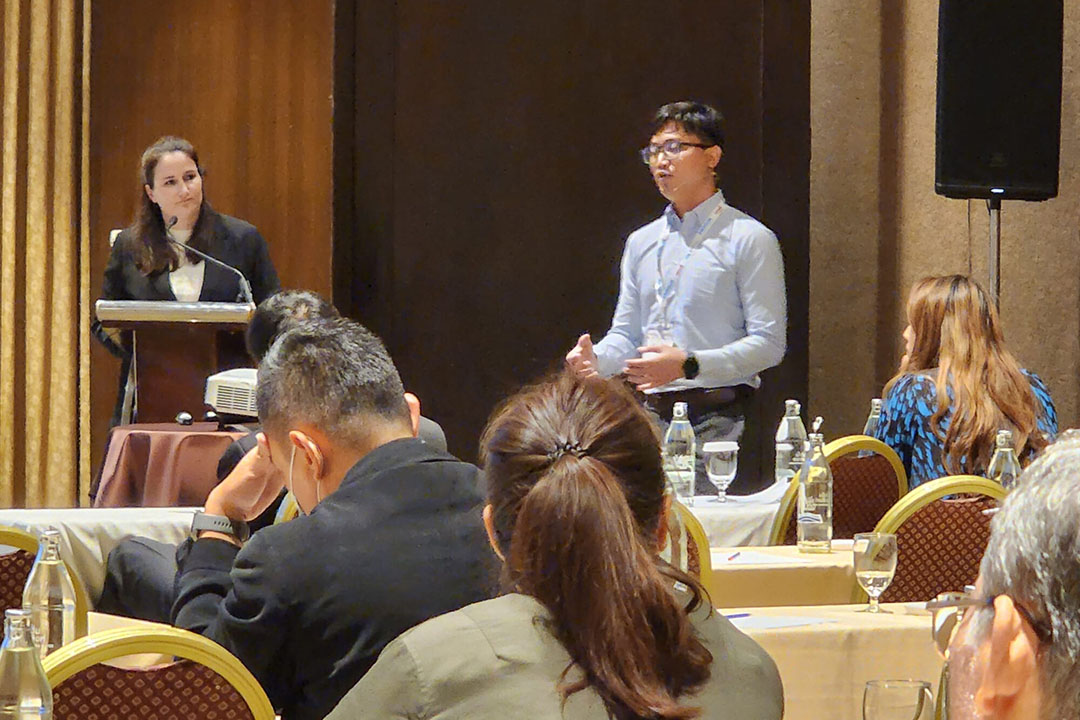
Key pillars of favourable nutribiotic state
He explored the key pillars of a favourable nutribiotic state in the bird that can be achieved through:
Nutrition (improved digestibility, energy utilisation, and fibre breakdown);
Microbiome (increased beneficial bacterial populations; decreased non-beneficial & opportunistic bacteria; positive changes in fermentation patterns);
Gut and immune function (improved intestinal integrity and structure, reduced risk of inflammatory response, reduced physiological stress).
Sidiq further discussed dietary protein levels and its effect on microbial population. He added that “The number of Clostridium perfringens colonies is significantly affected by the dietary protein level and an increase of dietary protein will result in an increased level of Clostridium perfringens colonies in the distal part of the GIT.
By 2050 AMR will be the main cause of human health issues, there must be a multifactorial approach
– Fajrin Sidiq
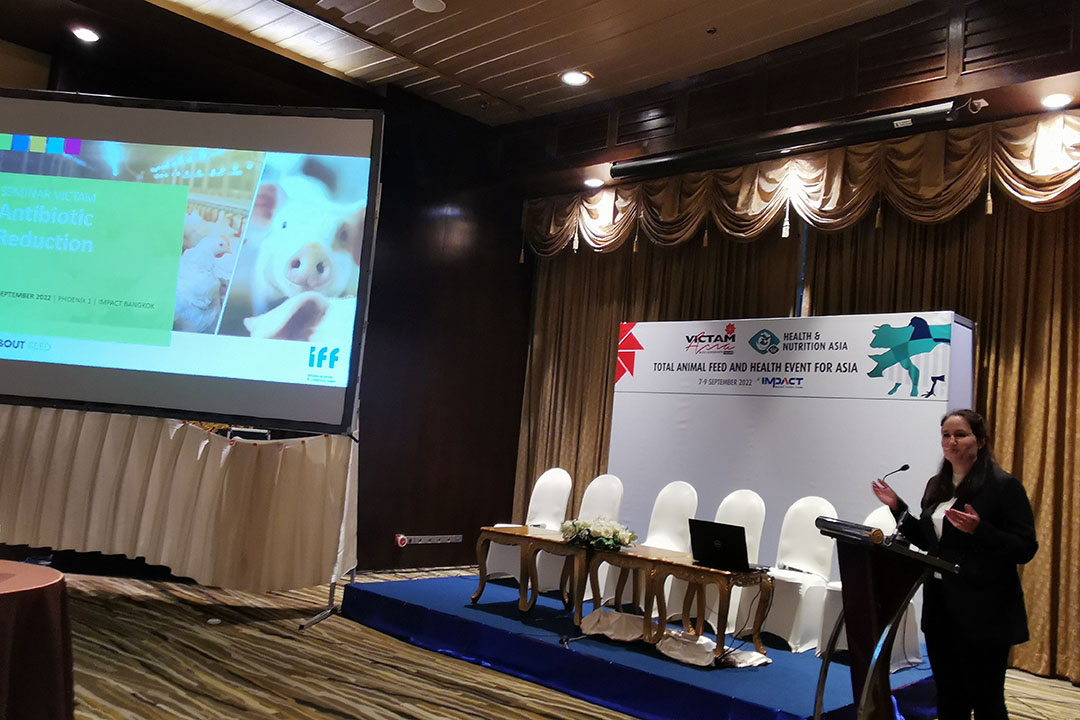
A multifactorial approach
He looked at enzymes and how they improve nutrient digestibility and promote good bacteria in poultry flocks. Sidiq added that “creating a beneficial gut environment in poultry by optimising nutrient digestibility and microbiome modulation is vital” and that a synergistic combination of enzymes with probiotics or essential oils contributed to intestinal integrity, immune response and energy cost will serve as protection for flocks to support antibiotic reduction and hence lead to sustainable production.
All About Feed welcomes you to attend the in-person All About Feed Forum, 7 and 8 June 2023 in Wageningen – The Netherlands. Agenda to follow.





